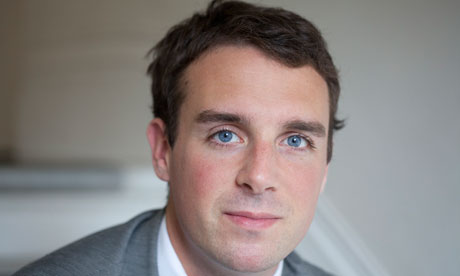
I started giving blood regularly in my teens, and at the age of 25 became an organ donor. In a small way it made me feel I was helping people who needed it. Maybe I'm too easily swayed by NHS marketing, but when I read about "altruistic" kidney donation at the blood bank I thought it sounded like something I would like to do.
Altruistic donation, when a living donor gives one of their organs to a stranger, was legalised only in 2006. For the first 12 months no one came forward. Then between 2007-08 10 people did and in 2010-2011 there were 40 donations. So far 88 people have become altruistic donors.
It was the idea of instantly helping to save a life that appealed. I'm not a doctor or a soldier – I work in marketing at a communications agency in London and Abu Dhabi – so the likelihood of rescuing someone is relatively low. I don't know anyone with kidney disease, but everyone has friends or relatives hit by cancer or brain tumours. When that happens you want to help but can't. So I thought, here are people going through equally awful things and this time there is something I can do.
I try to explain the attraction through religion — it's good karma "being a good samaritan", or, as the Talmud says, "he who saves a single life saves the entire world". But really it was just the question: "If I was in dire need of a kidney would I accept one from a stranger?" Of course I would. And, no, I wasn't worried about the risk of losing a kidney – you can live perfectly well with one, and if you did get kidney disease it affects both organs anyway.
In January 2010 I put myself forward. The specialists explained that, as with any major surgery, there are risks involved; mainly from infection and, more rarely, bleeding or blood clots. The risk of death for the donor is roughly one in 3,000. There is a small possibility of a slight rise in your blood pressure and excess protein in your urine but studies show no long-term effects from donating or from living with just one kidney.
After many physical tests I had to have a psychological assessment to check I was supported by my family and wasn't depressed or lonely. When I first told my parents, they were shocked. They suggested waiting until I was older – at 25 I am the joint-youngest altruistic donor (the oldest is 82). But the testing took so long, they assumed I had dropped it. Telling them I had been approved was the most stressful part of the whole process. They took it very hard and I did feel guilty about putting them through so much stress. But once they saw how committed I was they accepted it, and are now very proud.
In early June I went into Guy's and St Thomas' hospital in London for the operation. Beforehand I had been quite emotionally detached, but seeing patients with kidney disease made me realise I was doing the right thing. The man in the bed opposite me was about five years older than I am and both his kidneys had failed. When his family found out what I was doing they were touched.
The operation took four hours but I was surprised at how little it hurt afterwards. I was in hospital for four days – the worst part of the whole ordeal was removing the catheter. In just two weeks I was back at work (the full recovery is supposed to be three months). I heard that the operation to receive my kidney went well, but I didn't want to know who the recipient was (before the operation donors and recipients can make contact if they both agree). It would have felt great to know whose life you had changed, but if the kidney failed I would have felt responsible. Also, while I am very open- minded and think anyone deserves a kidney, it might have bothered me if I disapproved of their beliefs – for example if they were racist. So, I'd rather just hope it's doing some good and being appreciated.
Today I am back to complete health (I'm running a 10km obstacle race for charity in November) and like to think the person who has my left kidney feels a lot better. I'd really like to encourage others to donate organs. I hope that in a few years there will be far more donors and far fewer people waiting for kidneys.
I have had some amazing experiences – travelling to the Himalayas and bungee jumping. But to know I have made a radical difference to someone is a whole other level. The only thing I would quibble with is that it is called "altruistic". To be truly altruistic I wouldn't have got anything out of it – and that couldn't be further from the truth.
• To join the NHS Organ Donor Register visit organdonation.nhs.uk or call 0300 123 23 23. To become a blood donor call 0300 123 23 23 or visit blood.co.uk. To find out more about living donation see nhsbt.nhs.uk

